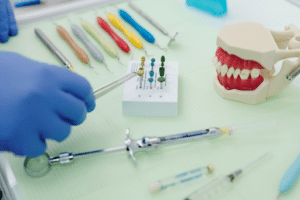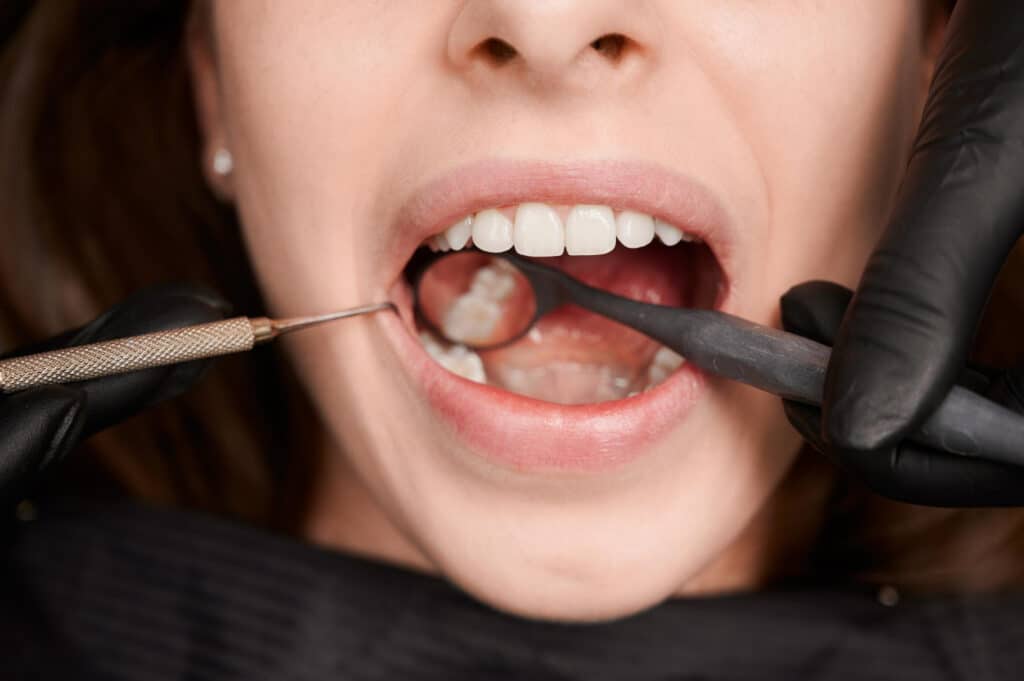Maintaining dental health is crucial, but many wonder, “How often do I need to see a dentist?” Regular checkups help prevent common dental issues, yet the frequency can vary based on several factors. Explore how often you should schedule dental visits to keep your teeth and gums healthy, tailored to your specific needs.
The Importance of Regular Dental Visits

Regular dental visits are a cornerstone of oral health care. They play a pivotal role in preventing diseases and ensuring your smile stays bright and healthy. Here’s why they are essential:
Prevention of Oral Diseases
Regular checkups allow dentists to catch early signs of gum disease, tooth decay, and other oral health problems before they worsen. Routine visits can help you avoid the discomfort and high costs associated with more extensive dental procedures that become necessary when issues are left unchecked.
Early Detection
In addition to checking for cavities and gum problems, dentists also look for signs of more serious conditions, such as oral cancer. Early detection of such diseases significantly improves the chances of successful treatment and can be life-saving.
Maintaining Overall Health
The health of your mouth mirrors the condition of your body as a whole. For instance, several studies have linked chronic oral infections to heart disease, stroke, and diabetes. Dental checkups can often detect early signs of these conditions, providing an opportunity for timely intervention.
How Often Do I Need to See a Dentist?
How often you should visit the dentist can sometimes be a general question with a variety of specific answers depending on one’s age, health status, and dental history. However, there are some general guidelines that most people can follow:
American Dental Association Guidelines
The American Dental Association (ADA) suggests that adults and children should visit their dentist regularly for optimal oral health. The exact frequency of these visits should be determined by a dentist, because everyone’s oral health varies. For many, this means a checkup and cleaning at least twice a year.
Age-Specific Recommendations
- Children: The first dental visit should be scheduled after the first tooth appears and no later than the first birthday. Early visits help in identifying any early signs of dental problems and establishing a good oral hygiene routine.
- Adults: For adults with good oral health, visiting the dentist twice a year is sufficient for maintaining dental health, but those with more frequent problems may need additional appointments.
- Seniors: Older adults may require more frequent visits as they are more susceptible to dental diseases like gum disease and dry mouth, conditions that can affect overall health and quality of life.
How often do I need to see a dentist? These recommendations serve as a starting point. However, the frequency of visits can vary greatly depending on individual circumstances and conditions. It’s important to discuss with your dentist the best schedule for your specific dental needs to ensure that your oral health is continuously monitored and maintained.
Factors Influencing How Often You Should Visit
Determining the frequency of your dental visits isn’t a one-size-fits-all matter. Several key factors can influence how often you need to see your dentist:
Oral Health Status
“How often do I need to see a dentist if I have existing dental issues?” Individuals with ongoing issues like gum disease or frequent cavities may need more frequent dental appointments. Regular visits allow your dentist to manage these conditions effectively and prevent further complications.
Lifestyle Factors
- Smoking and Tobacco Use: Tobacco users are at a higher risk for gum disease, oral cancer, and tooth decay. Dentists often recommend more frequent checkups for smokers to manage these risks.
- Diet: High consumption of sugary or acidic foods can increase the risk of tooth decay, making more frequent dental visits necessary to monitor and prevent cavities.
Medical Conditions
- Diabetes: People with diabetes are at a higher risk for gum disease, fungal infections, and other oral health issues. Managing blood sugar is crucial, but regular dental checkups are also essential for maintaining oral health.
- Heart Disease: There is a well-documented link between cardiovascular disease and gum health. Those with heart conditions might need more rigorous dental care to manage the potential risks associated with periodontal disease.
- Pregnancy: Hormonal changes during pregnancy can lead to an increased risk of periodontal disease and gingivitis. Pregnant women are often advised to have more frequent dental checkups.
History of Dental Issues
If you’ve had frequent cavities, root canals, or gum disease treatments, your dentist might recommend more frequent visits to keep these issues in check and to prevent future problems.
By considering these factors, your dentist can create a personalized checkup schedule that best fits your health needs and lifestyle, ensuring your teeth and gums remain healthy. Regular communication with your dentist about any changes in your health or lifestyle is also crucial for adjusting your dental care plan as needed.
Special Considerations for Different Groups
Different stages of life and unique health conditions require tailored approaches to dental care. Understanding these special considerations can help ensure that each individual receives the appropriate dental attention for their specific needs.
Children and Teens
Establishing good dental habits early is crucial. Pediatric dentists focus on monitoring the development of teeth and jaws, preventing decay, and educating patients on proper brushing and flossing techniques. Teenagers, who may be undergoing orthodontic treatment, also require regular checkups to ensure that their teeth and gums remain healthy amidst the challenges of braces or other dental appliances.
Pregnant Women
“If I’m pregnant, how often do I need to see a dentist?” Pregnancy significantly influences oral health. The surge in hormones can lead to an increased risk of periodontal disease and requires that oral hygiene be monitored more closely. It is generally safe and recommended for pregnant women to undergo dental checkups and cleanings, which can help prevent pregnancy gingivitis and reduce the risk of adverse pregnancy outcomes linked to oral infections.
Seniors
As people age, they may face a range of dental issues, such as dry mouth, wear and tear of teeth, and increased risk of oral cancer. Many older adults also deal with complications from medications that affect oral health. Regular dental visits can help manage these age-related dental problems effectively and maintain the overall quality of life.
Individuals with Disabilities
Special care may be necessary for individuals with physical or cognitive disabilities. These patients can have unique challenges in maintaining their oral health, ranging from difficulty brushing and flossing to requiring specialized dental treatment plans. Dentists can provide adaptive techniques and tools to assist in their daily dental care, and may recommend more frequent visits to address specific needs and prevent dental diseases.
What to Expect During a Dental Checkup
Understanding what happens during a dental checkup can help ease any anxiety about visits and highlight the importance of regular appointments. Each visit typically includes several key components to ensure comprehensive care:
Examination
Your dentist will start by examining your teeth, gums, and mouth, looking for signs of decay, gum disease, or other oral health issues. This examination may also include checking your bite and jaw for any problems.
Cleaning
Dental cleanings are performed by a dental hygienist, who will carefully remove plaque and tartar buildup from your teeth. This process, often referred to as scaling, helps prevent the development of cavities and gum disease. The hygienist will also polish your teeth to remove any surface stains.
X-Rays
Depending on your age, risk of disease, and symptoms, your dentist may recommend dental X-rays. These images help detect problems that can’t be seen during a visual examination, such as issues below the gum line, between teeth, or under existing fillings.
Consultation
After the examination and cleaning, your dentist will discuss any findings with you. This is the time when you can learn about the health of your teeth and gums and discuss any treatment you might need. Your dentist will also provide personalized advice on how to improve your oral hygiene based on the examination results.
Preventive Advice
Before you leave, your dentist or dental hygienist may offer advice on how to care for your teeth and gums at home. This could include demonstrations on brushing or flossing techniques, nutritional advice, and recommendations for future care.
Choose Advanced Emerald Dentistry for Trusted Dental Care
At Advanced Emerald Dentistry, we combine top-notch dental care with a gentle touch in Pierce County, WA. Whether you’re considering enhancing your smile with Invisalign or needing braces, trust our team of dedicated professionals to guide you every step of the way.
Our Invisalign and braces services are designed to provide you with a seamless and comfortable experience, resulting in a smile you’ll be proud to show off. With our state-of-the-art technology and skilled dentists, achieving your perfect smile is easier and more accessible than ever.
Don’t wait to take the next step towards a healthier, more beautiful smile. Contact us today to schedule an appointment at our Puyallup or Graham locations and discover why families in Pierce County choose Advanced Emerald Dentistry for all their dental needs.





